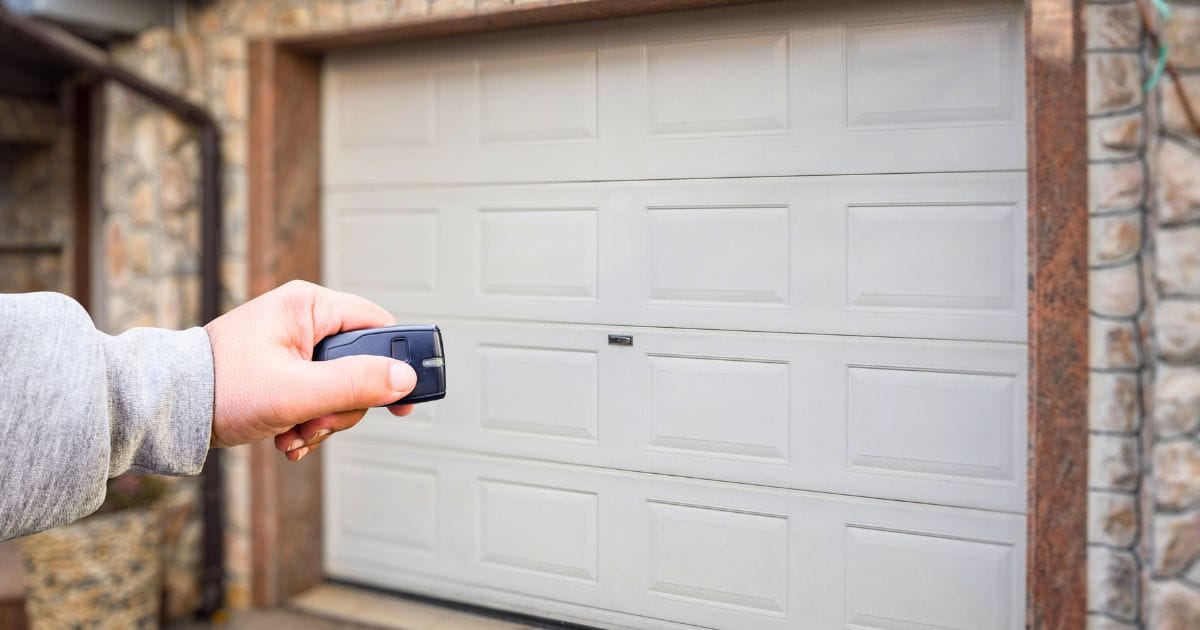As homeowners, we often focus on insulating our living spaces. Have you considered the benefits of insulating your garage door? Garage door insulation is a topic discussed in terms of energy efficiency.
Benefits of garage door insulation
- Energy efficiency
The primary reason to insulate your garage door is to improve energy efficiency. An insulated garage door helps to maintain a more consistent temperature inside your garage, which leads to lower energy bills. If your garage is attached to your home, an insulated door prevents heat or cold from seeping into your living space, reducing the workload on your HVAC system.
- Noise reduction
Insulated garage doors also provide a significant reduction in noise transmission. Suppose you live in a busy area or have a workshop in your garage, an insulated door to minimize the sound of traffic, power tools, or other external noises. This creates a more peaceful environment inside your garage and home.
- Durability
Adding insulation to your garage door repair annapolis increases its durability and lifespan. The insulating material provides an extra layer of protection against dents and impacts, helping to maintain your door’s structural integrity. This added durability saves you money on repairs or replacements in the long run.
- Comfort
Suppose you spend significant time in your garage, whether for hobbies, workouts, or as a home office; an insulated garage door is excellent. The insulation helps to regulate the temperature to make the garage more habitable throughout the year. This is extreme hot or cold weather.
- Increased home value
Insulating your garage door can be a wise investment in home value. Potential buyers often appreciate energy-efficient features, and an insulated garage door is a selling point. It demonstrates the steps taken to improve your home.
Cost considerations
While the benefits of garage door insulation are clear, it’s essential to consider the costs involved. The price of insulating your garage door varies depending on factors such as the size of your door, the type of insulation material used, and whether to do it yourself or hire a professional. Professional garage door insulation costs between $200 and $500. If you opt for a DIY approach, you find garage door insulation kits ranging from $50 to $200. It’s important to weigh its long-term energy savings and other benefits.
DIY vs. professional installation
Insulating your garage door is a manageable DIY task if you’re handy with tools and comfortable taking on home improvement projects. Many home improvement stores offer garage door insulation kits with pre-cut panels and adhesive tape for easy installation. However, hiring a professional is a wise choice if you need more time or inclination to do it yourself. A professional garage door technician will ensure that the insulation is installed correctly and that your door operates smoothly afterwards.
Selecting the right insulation
When choosing insulation for your garage door, there are two main options: polystyrene and polyurethane. Polystyrene insulation is more affordable and accessible, making it a popular choice for DIY projects. It typically comes in pre-cut panels easily attached to your garage door. Polyurethane insulation is more expensive but offers a higher R-value, providing better insulation. It’s often used in professional installations and is sprayed onto garage door gaps or crevices.
Related posts
Recent Posts
Why “Standard Size” Windows Don’t Exist? Window Replacement Experts in Athens, AL Get the Perfect Fit
When it comes to home renovations, windows play a pivotal role in both aesthetics and functionality. Many homeowners in Athens, AL, might assume that window sizes are standardized, but this is a common misconception. In reality, the concept of “standard” window sizes is more myth…
Why do regular AC tune-ups extend the life of your cooling system?
Air conditioning systems are substantial investments, typically costing thousands of dollars to replace. Without regular maintenance, these systems deteriorate faster than necessary. Depending on the manufacturer, neglected HVAC systems can lose up to 5% of their efficiency yearly without proper maintenance. This decline happens gradually,…



